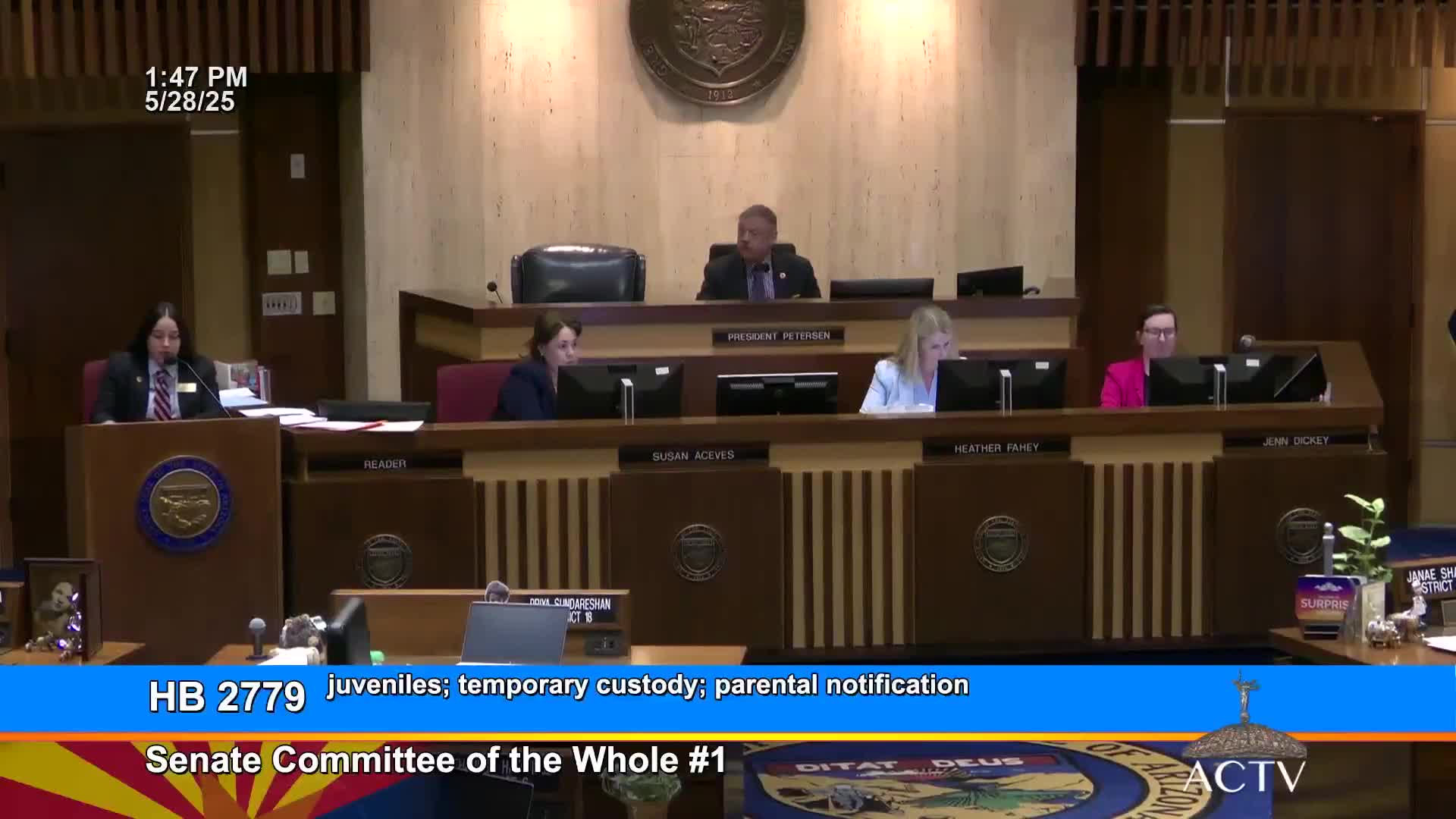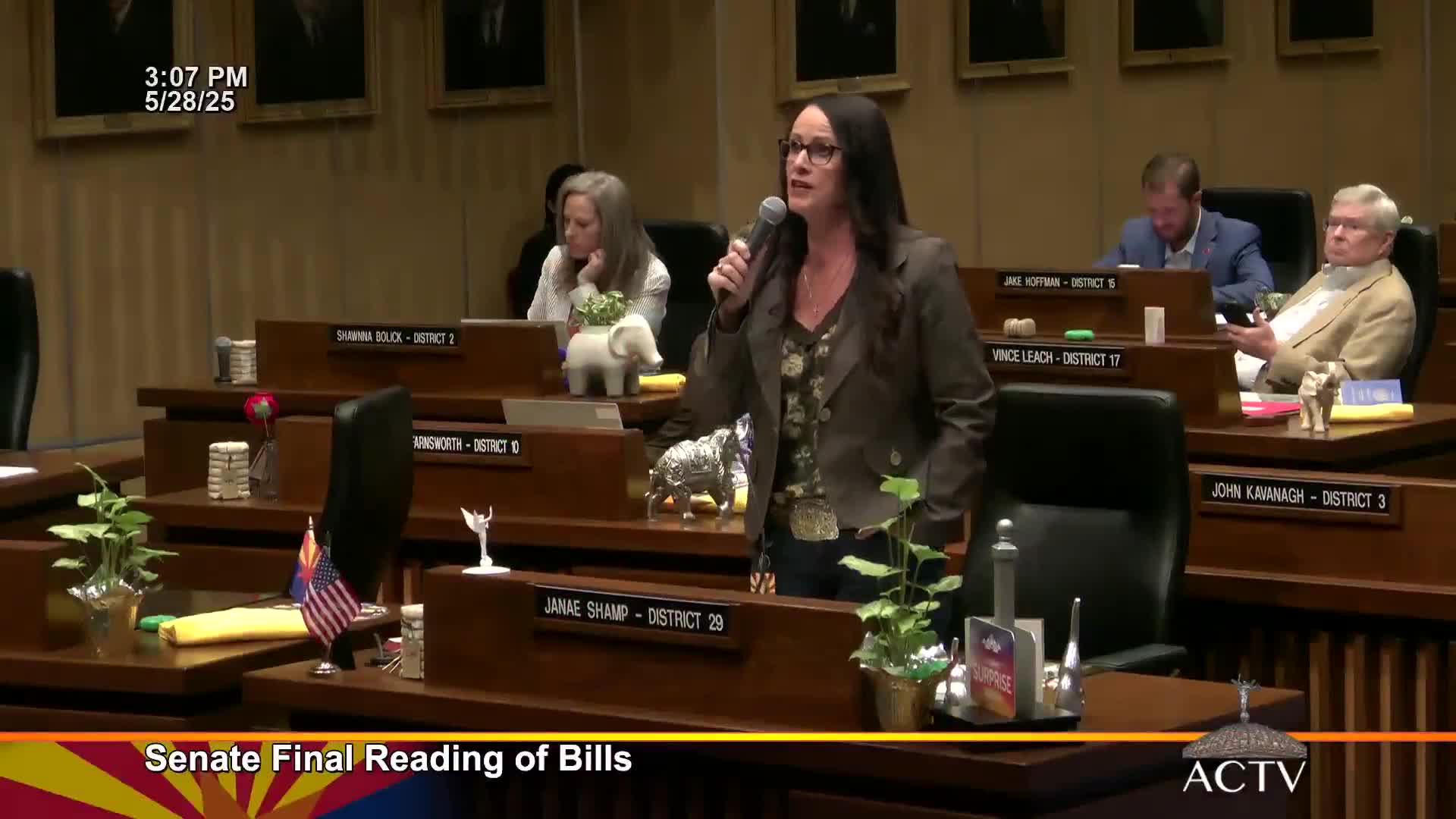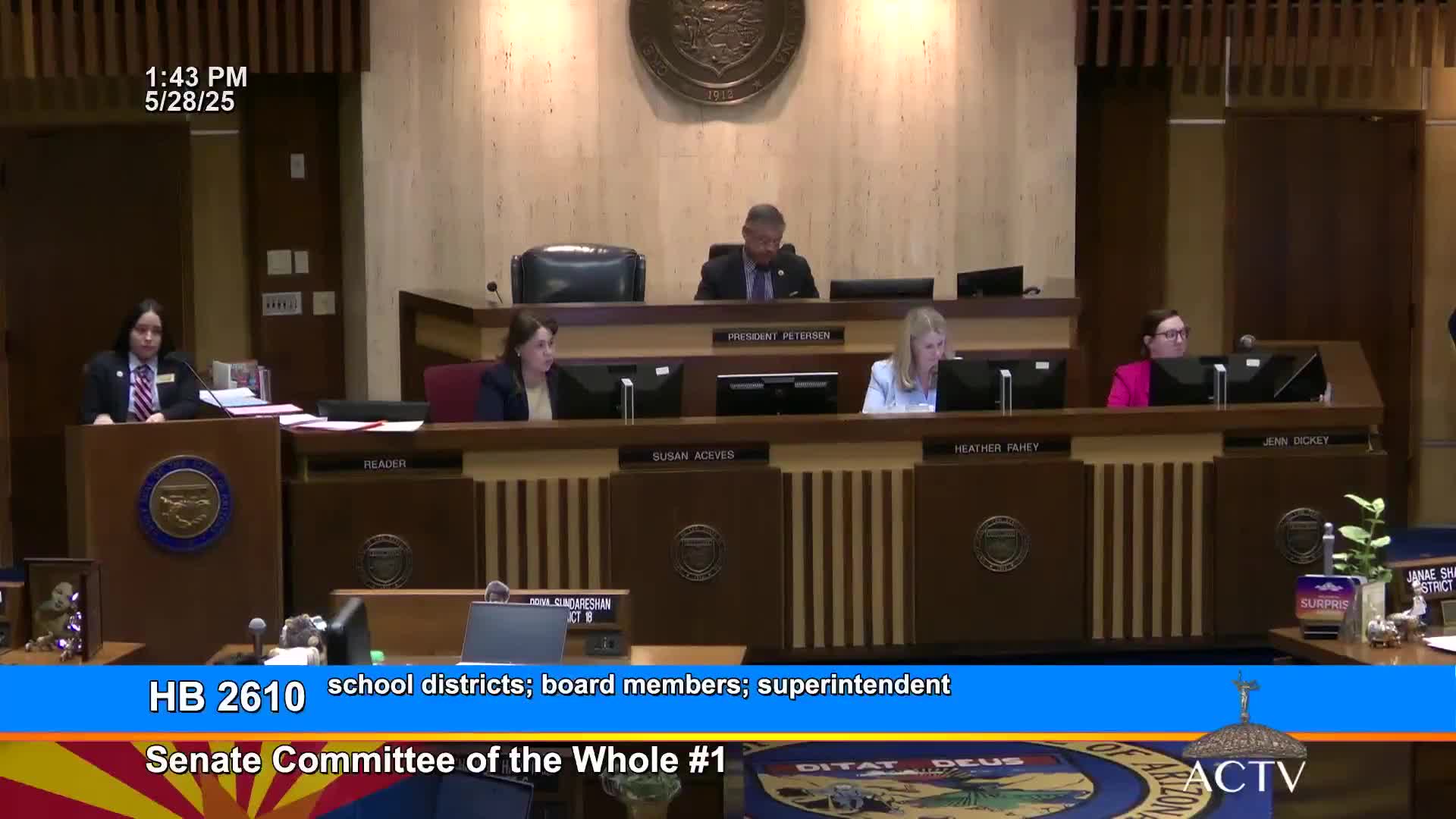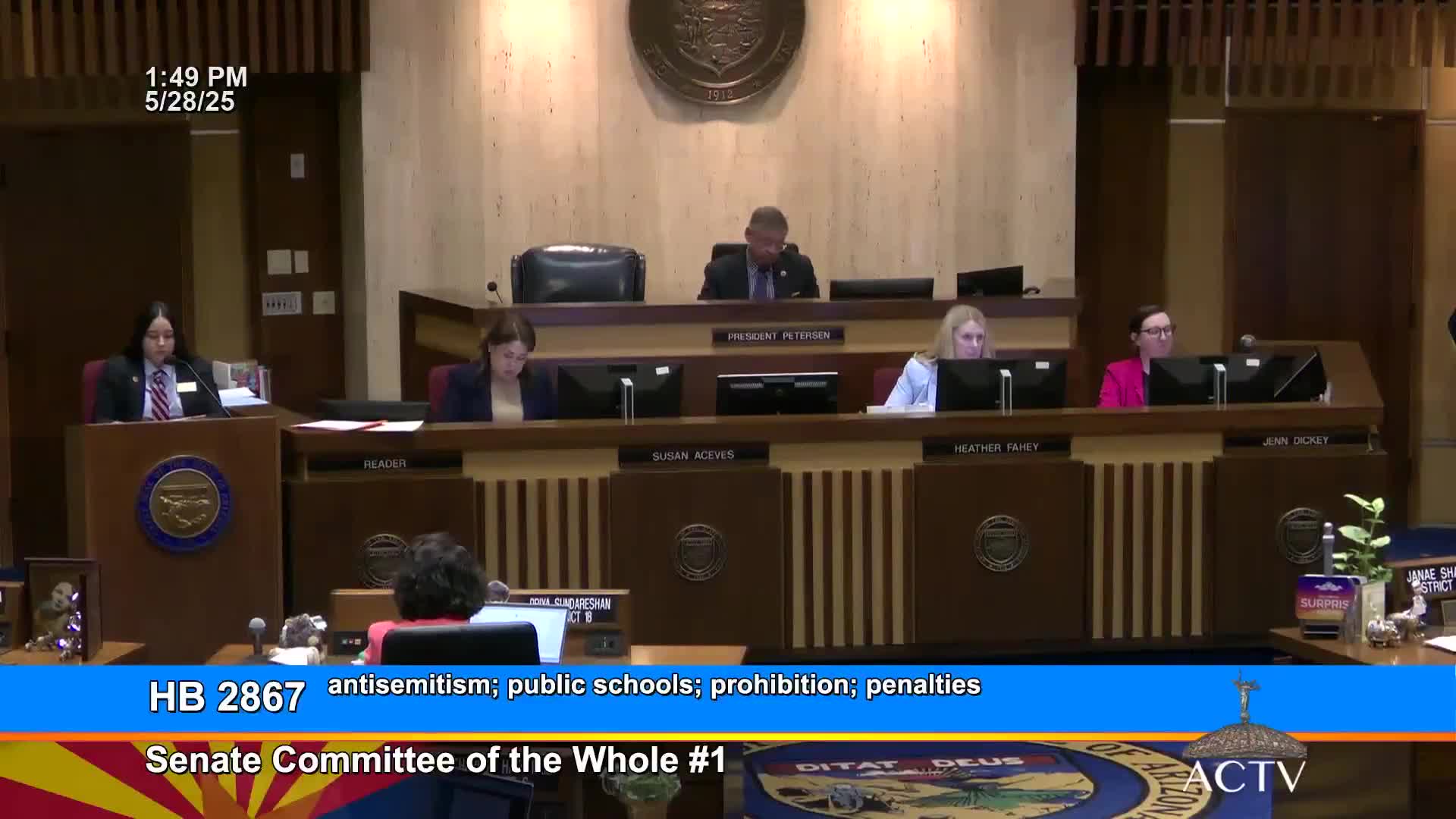Article not found
This article is no longer available. But don't worry—we've gathered other articles that discuss the same topic.

Senate approves bill clarifying parental notification when juveniles placed in temporary custody

Senate approves ban on certain foreign land purchases aimed at protecting military training sites; critics warn of xenophobic echoes

Senate advances bill that forces school board seats vacant after state receivership; critics call it punitive

